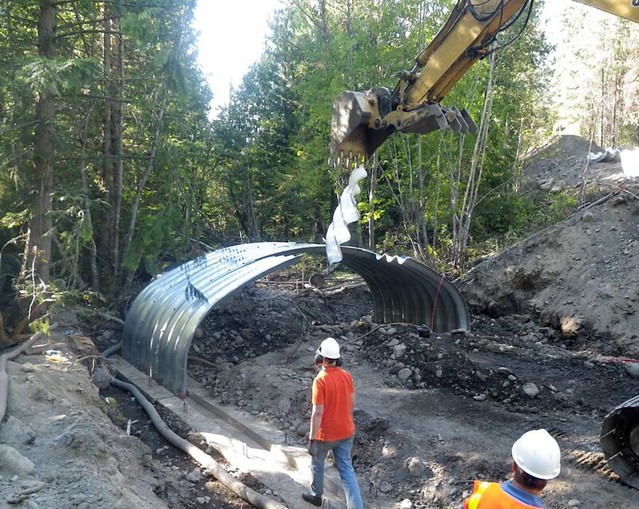
Preparing for the effects of climate change, the U.S. Forest Service has taken the lead in a new report that highlights actions taken by federal agencies to adapt to a changing climate.
“Some federal agencies are making good progress in climate change adaptation,” said University of Washington scientist and lead author Jessica Halofsky. “Most agencies have broad plans that describe approaches and priorities for climate change in general … but on-the-ground projects have been implemented slowly across the country.”
The report, Climate Change Adaptation in United States Federal Natural Resource Science and Management Agencies: A Synthesis was a response to direction from the Obama Administration for federal agencies to stress their accomplishments in adapting to climate change.
Published by the U.S. Global Change Research Program and funded by the Forest Service Climate Change Advisor’s Office, the report was written by Forest Service and University of Washington scientists.
One challenge in writing the report is that each agency has a different focus for adaptation. For example, the National Park Service focuses on protecting ecosystems, while the Fish and Wildlife Service is concerned about the effects of a warming climate on salmon. The Department of Defense has as a focus of protecting coastal facilities so they are not damaged by sea-level rise.
“We want to make sure that coordination is occurring in climate change programs across all federal agencies,” said Emily Seyller of the Global Change Research Program. “This new report gives us a baseline for coordinating responses to climate change in the years ahead."
Although some have called for greater certainty about climate change effects before taking action, the report documents that at the local level, agency resource managers are moving forward with climate change assessments and adaptation strategies. For example, the Forest Service has already completed assessments for a third of its national forests.
“We’re drowning in data and scientific publications,” said Forest Service scientist Dave Peterson. “We need to take the information we have, assess the risk of climate change on natural resources, and manage that risk as part of agency business.”
The report’s authors are optimistic that federal agencies can make progress in climate change adaptation in the years ahead, but emphasize that implementation needs to be accelerated. “We’re not in crisis mode, but the clock is ticking as the climate continues to warm,” said Peterson. “If we don’t pick up the pace in responding, we may preclude options that would maintain the sustainability of resources on federal lands.”


